At the heart of your car’s engine lies a silent guardian, a component so crucial yet often overlooked—the air filter. This humble part is the first line of defense against the outside world’s dust, debris, and pollutants, ensuring that your engine breathes clean, uncontaminated air. Like lungs for your vehicle, a clean air filter optimizes performance, enhances fuel efficiency, and extends the life of your engine. But when it becomes clogged, a cascade of issues can unfold, diminishing your car’s health and vigor. This guide will unveil the unmistakable signs that herald the need for a new air filter, empowering you to take timely action and keep your car running at its best.
Contents
Decreased Fuel Efficiency
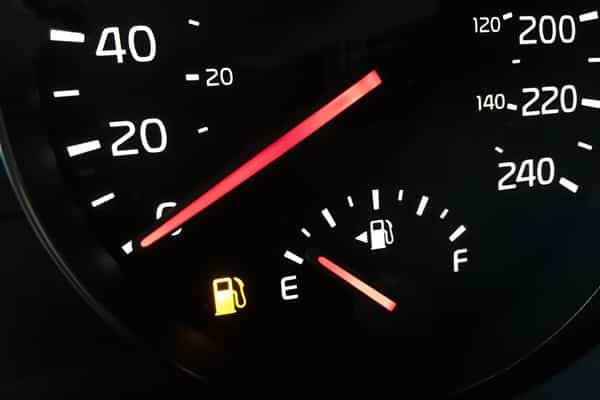
A noticeable decrease in fuel efficiency is often one of the first signs that your air filter needs attention. When the air filter is clogged, your engine has to work harder to draw in air, using more fuel to maintain the same level of performance. This inefficiency can lead to more frequent visits to the fuel pump, impacting your wallet and the environment. Drivers should monitor their fuel consumption patterns; a sudden increase in fuel usage may indicate it’s time to check the air filter.
Continued driving with a dirty air filter only exacerbates the problem, further reducing fuel efficiency over time. The extra strain on your engine to compensate for the lack of air can also lead to other mechanical issues. Regularly replacing your air filter can help maintain optimal fuel consumption rates and prevent more significant problems down the line. It’s a simple maintenance task that can have a substantial impact on your car’s overall efficiency.
Unusual Engine Sounds

A clean air filter allows your engine to run quietly and smoothly. However, a clogged filter can lead to unusual noises emanating from the engine compartment. These sounds may include popping, coughing, or any other noise that deviates from the engine’s normal hum. Such auditory cues are important indicators that the airflow to the engine is restricted, necessitating a check or replacement of the air filter.
Ignoring these sounds can lead to more serious engine complications. The stress of operating with insufficient air can cause wear and tear on engine components, potentially leading to expensive repairs. Drivers noticing unusual engine sounds should inspect their air filter and replace it if necessary. This simple step can prevent minor issues from escalating into major mechanical failures.
Reduced Horsepower

When your car’s air filter is dirty, one of the most palpable signs is a reduction in horsepower and acceleration. The engine relies on a precise mixture of air and fuel to generate power efficiently. A clogged air filter disrupts this balance, causing the engine to struggle and perform poorly. This is particularly noticeable during acceleration, where the car may feel sluggish or unresponsive.
The impact on driving performance can be significant, making it difficult to overtake or merge onto highways safely. This reduction in horsepower is not just a nuisance; it can compromise driving safety. Regularly checking and replacing your air filter ensures that your engine operates at peak efficiency, restoring its power and responsiveness. This maintenance task is crucial for keeping your vehicle safe and enjoyable to drive.
Misfiring Engine
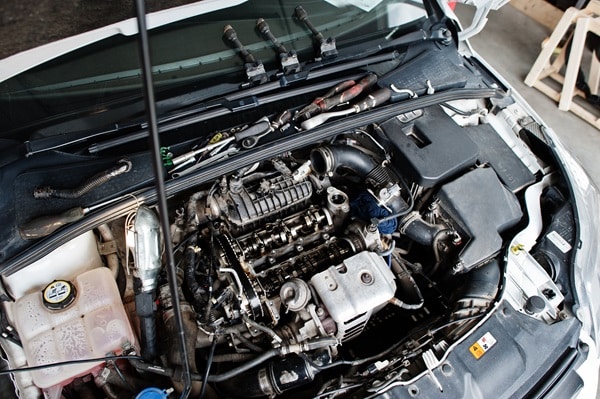
An engine misfire is a clear sign that your car may need a new air filter. Misfires occur when the engine fails to ignite the fuel in the cylinder on time, often resulting from an improper air-to-fuel ratio. A dirty air filter can restrict the amount of air entering the combustion chamber, leading to incomplete combustion and, consequently, misfiring. This issue can manifest as a rough idle, hesitation during acceleration or an overall reduction in engine performance.
Continuous misfiring can cause damage to the engine and its components, including the catalytic converter, which can be costly to repair. Additionally, it can lead to increased emissions and decreased fuel efficiency. To prevent these problems, it’s essential to inspect and replace your air filter regularly. Keeping the air filter clean ensures that your engine receives the right amount of air for efficient combustion, reducing the risk of misfires and maintaining engine health.
Black Smoke or Flames Exiting the Exhaust
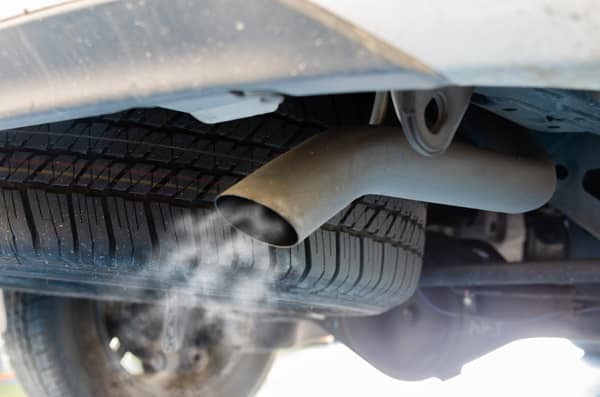
When an air filter becomes excessively clogged, it can lead to an overly rich fuel mixture—where there’s too much fuel and not enough air. This imbalance can cause the unburnt fuel to ignite in the exhaust system, leading to black smoke or even flames exiting the exhaust. Such symptoms are serious indicators that the air filter is significantly impeding the engine’s ability to function correctly. If you notice black smoke or flames, it’s crucial to address the issue immediately to avoid further damage to your vehicle.
Ignoring these warning signs can lead to a range of problems, including reduced engine performance and potential damage to the exhaust system. In severe cases, it could even pose a fire risk. Replacing a dirty air filter not only prevents these extreme symptoms but also restores proper airflow to the engine, ensuring that the fuel combustion process is balanced and efficient. Regular inspections and timely replacements of the air filter can safeguard your vehicle against such hazardous conditions.
Check Engine Light Comes On
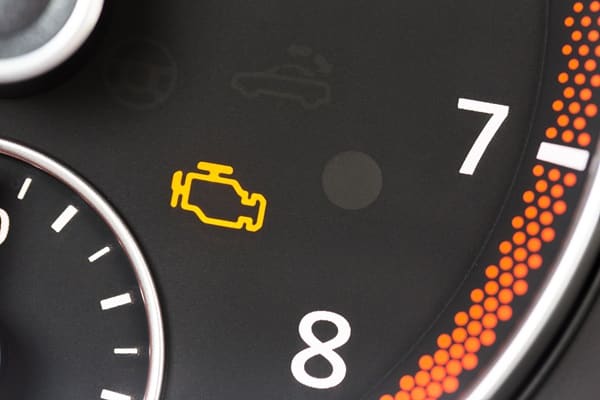
The check engine light is a catch-all indicator for various issues within your vehicle, including problems related to a dirty or clogged air filter. Modern cars are equipped with sensors that monitor the flow of air into the engine. When the airflow is restricted, it can trigger the check engine light as a warning that the engine is not receiving enough air for optimal combustion. While the light alone does not specify the cause, a checkup can reveal if a dirty air filter is to blame.
It’s important not to ignore the check engine light when it illuminates. Although it might be tempting to dismiss it as something minor, doing so can lead to more significant issues over time. A professional diagnostic check can determine the exact cause, and if it’s due to the air filter, replacement is a simple and cost-effective solution. Keeping the air filter clean ensures that your engine runs smoothly, preventing unnecessary stress on your vehicle’s components.
Visible Dirt and Debris
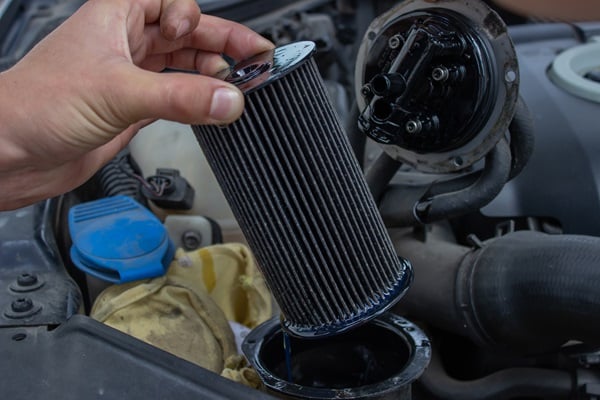
One of the most straightforward signs that your car needs a new air filter is visible dirt and debris accumulation. When inspecting the air filter, if the surface is covered in dirt and the filter’s original color is barely recognizable, it’s time for a replacement. A clean air filter should be free of heavy dirt accumulation and allow light to pass through when held up to a light source. This visual inspection is a quick and easy way to determine if your air filter is due for a change.
Regular air filter checks are essential, especially if you drive in dusty or polluted environments. These conditions can expedite the accumulation of debris and shorten the lifespan of your air filter. Changing a dirty air filter not only improves air quality and engine performance but also prevents larger particles from entering the engine, where they can cause abrasion and damage. Incorporating air filter inspections into your regular vehicle maintenance routine can help ensure your engine remains in good condition.
Excessive Engine Heat
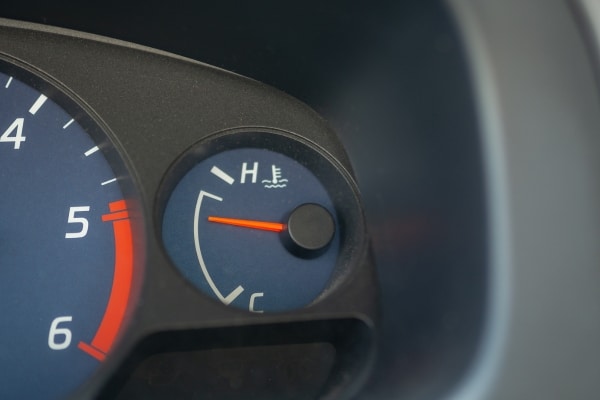
Excessive engine heat is another symptom of a clogged air filter. When the air filter is dirty, airflow to the engine is restricted, making it harder for the engine to breathe and cool down efficiently. This can cause the engine to run hotter than usual, which, if not addressed, can lead to overheating. Overheating is a critical condition that can cause significant engine damage, including warping of engine components and head gasket failure.
Monitoring your vehicle’s temperature gauge can help you catch overheating issues before they cause severe damage. If you notice the temperature consistently running higher than usual, checking the air filter should be part of your troubleshooting process. Replacing a clogged air filter can restore proper airflow, helping to regulate the engine’s temperature and prevent overheating. This maintenance step is crucial, especially during warmer months or when operating the vehicle under heavy loads, to ensure your engine runs within a safe temperature range.
Breathe Easy With a Clean Air Filter
Recognizing the signs that your car needs a new air filter is crucial for maintaining its performance, efficiency, and longevity. Whether it’s decreased fuel efficiency, unusual engine noises, or visible dirt and debris, each sign points towards the need for a quick inspection and possible replacement. By staying proactive about your air filter’s condition, you can ensure your vehicle runs smoothly, avoids unnecessary repairs, and keeps you safe on the road. Make the simple step towards better car care today and check your air filter.


